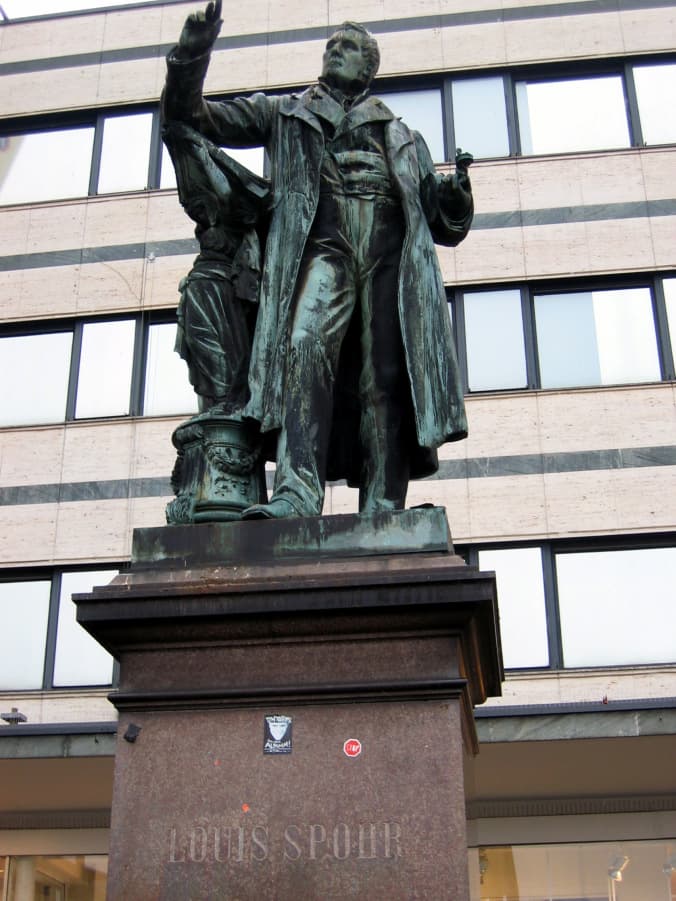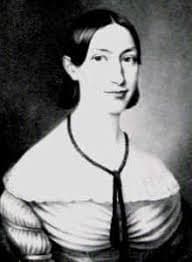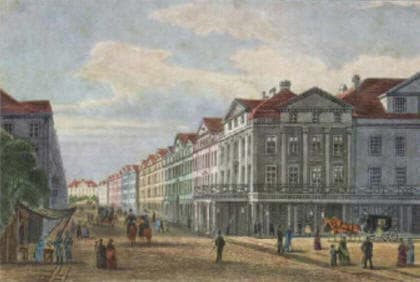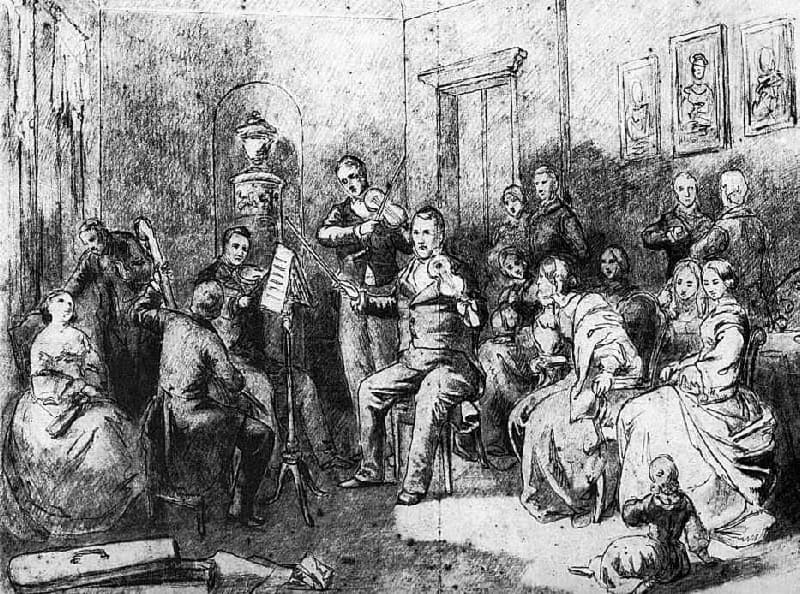Louis Spohr’s marriage to Dorette Scheidler, and their subsequent residence in the town of Kassel marked an important turning point in Spohr’s creative life. Although he was at the height of his powers as a violinist, he devoted an increasing proportion of his time to compositions not centered on his own instrument. And that included works written for the brilliant abilities of his harpist wife.

Statue of Louis Spohr in Kassel
In addition, his opera Jessonda confirmed his reputation as one of Germany’s leading composers, and the oratorio The Last Judgement laid the foundation for his triumphant celebration in England as one of the greatest composers of his age. The death of Dorette in November 1834 temporarily halted work on another oratorio, which was completed the next year. And merely a year later, he turned his attention to compositions for the piano. The reason for this newfound interest was the sister of his friend and poet Carl Pfeiffer. Marianne was 28 years of age and a gifted amateur pianist.
Louis Spohr: Duo Concertante in F Major, Op. 96 (Eldering Ensemble)

Marianne Spohr
Spohr writes in his autobiography, “I became fully confirmed in my resolve to sue for the hand of Marianne, whose knowledge of music and skill in pianoforte play I had already observed when she sometimes gave her assistance in accompaniment at the concerts of the St. Cecilia society. As I had not the courage to propose to her by word of mouth, there being more than twenty years difference in our ages, I put the question to her in writing and added, in excuse for my courtship, the assurance that I was yet perfectly free from the usual infirmities of age. I now awaited the answer with the most anxious expectancy. To my great joy, it proved one of assent, upon which I hastened to her parents and, in due form, asked her in marriage. They wished every happiness to our union, and we now daily learn to know each other better.”
Louis Spohr: Piano Quintet in D Major, Op. 130 (Thelma Handy, violin; Martin Outram, viola; Hartley Piano Trio)

Opera house of Kassel
The wedding took place on 3 January 1836, and Spohr’s daughters and their husbands were present to witness the happy occasion. “I now lived again in my former and accustomed domestic manner,” he writes, “and felt unspeakably happy with my wife! As we frequently played together, I became more and more acquainted with her high sentiment for the noble in the science of music, and from her great ability for reading at sight, was enabled in a short time to play with her not only all that I had previously written for the violin with pianoforte accompaniment, but many new things in that style of art, and which I had not previously known, were suggested to me by her. This inspired me with a great desire to try something for once in duets, especially written for pianoforte and violin. Thus engaged, I frequently observed with great pleasure the lively interest she took in my works, in the same manner as my departed wife had afforded me so much happiness and stimulated my labors. When I had written out a passage, upon playing it with her I could immediately hear its full effect, which interested and made us both equally happy.”
Louis Spohr: Piano Trio No. 3 in A minor, Op. 124 (New Munich Piano Trio)

Violin quartet party in Spohr’s house
Louis and Marianne immediately made a lengthy journey to Dresden and through Saxon Switzerland. They performed “new sonatas for violin and pianoforte that I have written for myself and my wife.” He composed his only piano sonata in 1843 and dedicated the work to Mendelssohn, who always regarded him with deep respect. Spohr’s popularity in England reached new heights, and he was offered the directorship of the Prague Conservatory. But since his wife preferred to stay close to her family, Spohr turned down the offer, and the couple remained in Kassel. Spohr eventually began to suffer from a serious nervous affliction that robbed him of sleep. Eventually, he became bedridden, and he asked his wife and sister to play four-hand music for him. He quietly listened to some symphonies and some Bach and Mendelssohn. Spohr became alert when they played one of his piano quintets, and the next morning, he requested his wife to sit on the bed beside him. “He took her hand, and kissed it tenderly, with an affectionate expression in his kindly beaming eyes that spoke to her more eloquently than could a thousand words.” Louis Spohr died in the evening of 22 October 1859, and his wife outlived him by almost 30 years.
For more of the best in classical music, sign up for our E-Newsletter
Louis Spohr: Septet in A minor, Op. 147 (Midsummer’s Music)
